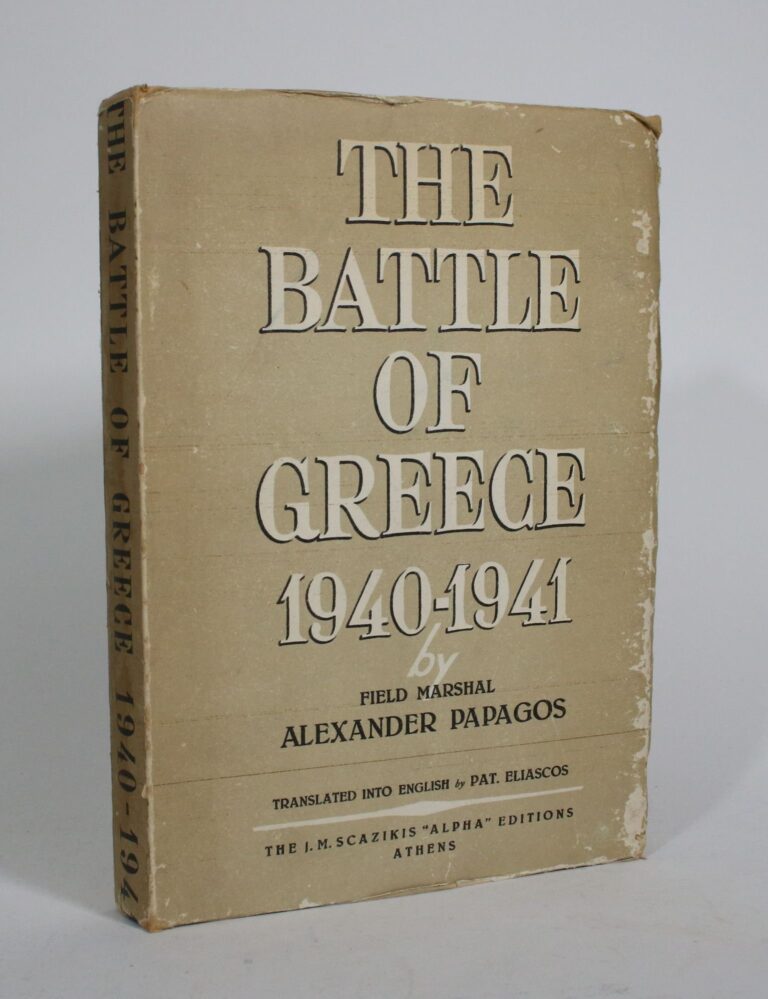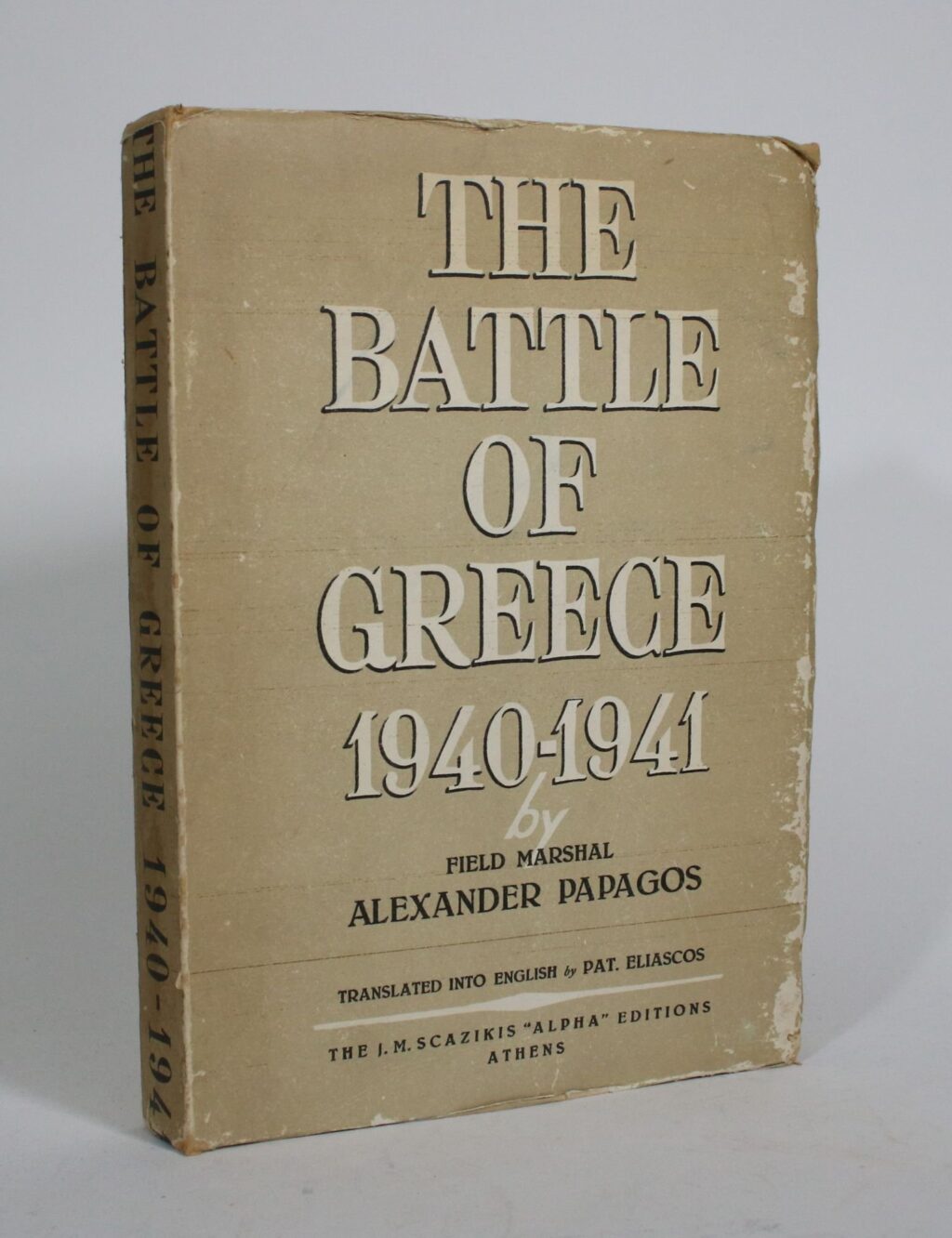Alexander Papagos, The Battle of Greece 1940-1941 (1949)
Alexander Papagos was a Greek military leader and late Greek Premier, who was a staunch opponent of both fascism and communism.
Born in Athens in 1883 as the son of a major general, Papagos was raised in a military household before entering the prestigious Brussels Military Academy. Commissioned as a cavalry lieutenant in 1906, he rose through the ranks of the Greek Army. By the late 1930s he was Minister for Military Affairs in charge of strengthening Greece’s defences as the threat of war in Europe grew ever more serious.
When war finally came, Papagos was appointed Commander in Chief of the Greek Army, and led a valiant campaign to save his country. He notably fought off an invasion conducted by fascist Italy in October 1940, but when the Nazi war machine decided to attempt the same thing the next year, Greece’s forces proved no match even with the assistance of Commonwealth Allies. Even after the official surrender, Papagos led a resistance movement, but he was ultimately captured, and would see out the duration of the conflict as a POW enduring horrific conditions in Dachau concentration camp – from which he was liberated in 1945. His book, The Battle of Greece serves as his own personal account of Greece’s war.
The book is important to Menzies in two respects. Firstly, because Australian troops were controversially committed to the Greek campaign despite Menzies being somewhat uneasy about the operation and unsuccessfully seeking to have it reconsidered. Stationed primarily in Crete, Australian troops were able to inflict significant casualties on German paratroopers, but faced with overwhelming numbers they soon had to be evacuated, and nearly 3000 were captured by the enemy and taken into POW camps. Menzies took much of the blame for this, and the episode played a significant role in precipitating the sniping that would lead to Menzies’s resignation as prime minister later that year. Though at the time the campaign was viewed as a disaster, Menzies later suggested that it was vital in delaying the Nazi invasion of the USSR such that it ran into the Russian winter and ultimately became unstuck, forever turning the tide of the war.
The second reason is that after the war’s end, Papagos returned to Greece and led the fight against communist guerrillas in the Greek Civil War. He subsequently entered politics, founding a new political party, winning an election landslide, and becoming a Cold War warrior who was responsible for Greece’s entry into NATO. He and Menzies thus had complementary world views, and Papagos would host the Australian Prime Minister on an official visit to Greece in 1955, during which Menzies performed wreath-laying ceremonies at the Tomb of the Unknown Soldier and the Commonwealth war memorial in Athens. The visit was a highly symbolic moment for Australia’s ever expanding Greek community, and it was during this visit that Papagos gave Menzies a copy of The Battle of Greece, which is signed:
‘His Excellency The Prime Minister Rt. Hon. Robert Gordon Menzies with the compliments of the author’ Athens 1955
Tragically, Papagos would not long outlast Menzies’s visit, and he passed away while still holding office later that year from gastric issues that had originated from his POW ordeal.
You might also like...
Sign up to our newsletter
Sign up for our monthly newsletter to hear the latest news and receive information about upcoming events.



